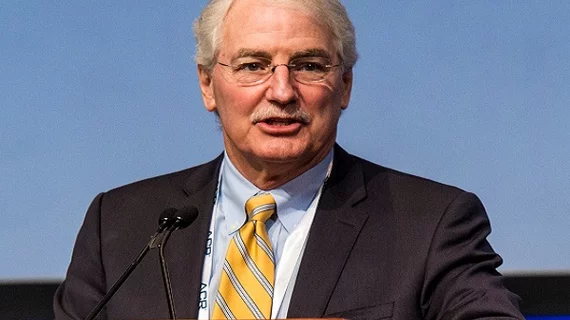American College of Radiology expresses ‘significant concerns’ over easing physician supervision requirements
The American College of Radiology is expressing “significant concerns” around federal efforts to weaken supervision requirements during the pandemic, with leaders asking CMS to roll back such changes when the crisis ends.
CEO William Thorwarth Jr., MD, outlined ACR’s apprehension in a recent letter to the head of the Centers for Medicare & Medicaid Services. His comments come in response to interim flexibilities granted by the feds in April, aimed at reducing infection risk and administrative burdens for physicians.
The college, in particular, has qualms about the long-term use of telecommunication for direct supervision of medical procedures, and the relaxation of oversight for outpatient hospital therapy.
“In general, the ACR supports temporary efforts to allow safe distancing and lessen transmission of COVID-19,” Thorwarth wrote to CMS Administrator Seema Verma May 29. “However, the ACR believes that CMS should require direct supervision for outpatient therapeutic services in the hospital outpatient setting follow the conclusion of the public health emergency.”
Expounding on its reservations, the college noted that ancillary clinical personnel such as nurses are an essential part of physician-led healthcare teams.” However, their leadership is no substitute for the “intensive specialized training that” radiologists, radiation oncologists and doctors in nuclear medicine receive.
“The ACR believes that CMS should not compromise quality patient care and safety by allowing outpatient therapeutic services to be performed without direct physician supervision,” Thorwarth wrote.
Meanwhile, CMS has also temporarily altered the definition of direct supervision, allowing docs to deliver such oversight using real-time audio and video technology. ACR said it similarly supports the use of these avenues to limit COVID’s spread during the pandemic, but it wants CMS to “carefully analyze the overall decision” after the public health crisis ends.
Thorwarth’s also commented on several other issues in the six-page letter, including the Medicare Shared Savings Program, site-of-service payment differentials for telehealth, and the college’s continued desire to expand rad authority.
You can read the rest of the letter here, and an ACR summary here.

